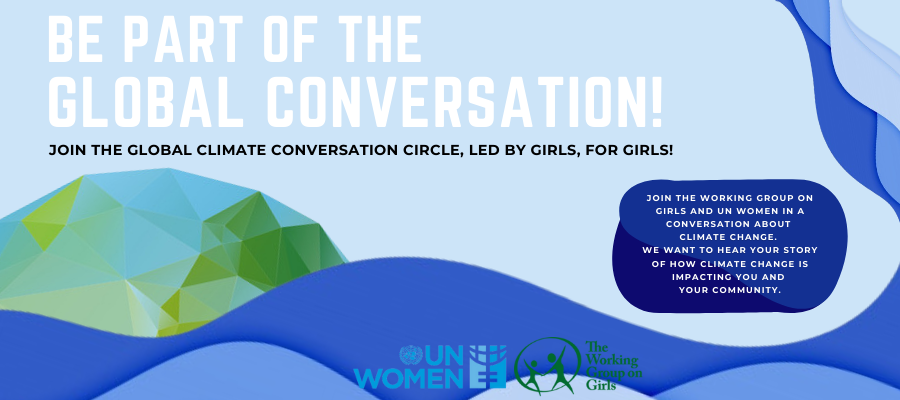
On December 11, 2021, girls from different parts of the world took part in and contributed to an equality campaign organised by the Working Group on Girls (WGG), a network of NGOs of which IBVM NGO is a proud member. In the conversation circles we discussed the impacts that girls and women have or can have on this worrisome problem of climate change.
Some of the most common effects of climate change that hinder a girl’s rights include: child marriage, violence, sexual and reproductive health problems and discontinuation of education. Girls are less likely to be educated about climate change, mainly because during times of crisis they are expected to or forced to discontinue their education and do the household chores which makes them ignorant of the severity of this ongoing global problem. Because of this they are also unaware of family planning measures and essential health services and consequently they suffer from health issues and unwanted pregnancies. Similarly, when the survival of the family is at stake, girls are often sent away by marrying them early. There is also a high chance of physical and mental abuse, violence and trafficking because of the extreme weather conditions. During the time of pregnancy, when women require more nutrition and care, they are more likely to go hungry if food is in short supply. This makes them more susceptible to certain kinds of diseases.
This controversial issue facing today’s world can be solved by following certain simple measures. Firstly, any girl’s basic right to education should not be jeopardized. Girls should be more active in leadership and more vocal about their impact on climate change. Taking a step forward from patriarchy, boys and girls should be provided with equal opportunities, both socially and economically. Government can also play a vital role in the eradication of the problems faced by girls due to climate change. Government can organize programs where women can confidently speak about their problems and share their personal experience regarding the same. It is important to make arrangements, at the local level, for girls to learn skills and handle the crisis situation in a better way. Seeking climate justice can be one of the ways of appealing to the richer countries, who are more responsible for most emissions, to help the people who are most affected by it.
A summary of the girls conversation in this event and in the local events that are being held in local communities in various countries will be delivered to UN Women. The report will be used to inform advocacy efforts for the 66th Session of the Commission on the Status of Women.
Author: Aarya Jha (Youth Advocate)
